
The Defense Intelligence Agency (DIA) is an intelligence agency and combat support agency of the United States Department of Defense, specializing in defense and military intelligence.

George John Tenet is an American intelligence official and academic who served as the Director of Central Intelligence (DCI) for the United States Central Intelligence Agency, as well as a Distinguished Professor in the Practice of Diplomacy at Georgetown University.

Eduard Ambrosis dze Shevardnadze was a Soviet and Georgian politician and diplomat who governed Georgia for several non-consecutive periods from 1972 until his resignation in 2003 and also served as the final Soviet Minister of Foreign Affairs from 1985 to 1990.

Robert Michael Gates is an American intelligence analyst and university president who served as the 22nd United States secretary of defense from 2006 to 2011. He was appointed by President George W. Bush and was retained by President Barack Obama. Gates began his career serving as an officer in the United States Air Force but was quickly recruited by the Central Intelligence Agency (CIA). Gates served for twenty-six years in the CIA and at the National Security Council, and was director of central intelligence under President George H. W. Bush from 1991 to 1993. After leaving the CIA, Gates became president of Texas A&M University and was a member of several corporate boards. Gates served as a member of the Iraq Study Group, the bipartisan commission co-chaired by James A. Baker III and Lee H. Hamilton that studied the lessons of the Iraq War.
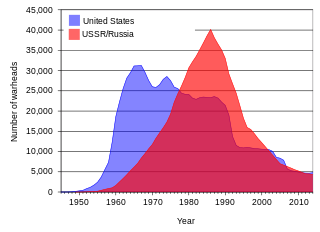
Team B was a competitive analysis exercise commissioned by the Central Intelligence Agency (CIA) to analyze threats the Soviet Union posed to the security of the United States. It was created, in part, due to a 1974 publication by Albert Wohlstetter, who accused the CIA of chronically underestimating Soviet military capability. Years of National Intelligence Estimates (NIE) that were later demonstrated to be very wrong were another motivating factor.

Raymond McGovern is a former Central Intelligence Agency (CIA) officer turned political activist. McGovern was a CIA analyst from 1963 to 1990, and in the 1980s chaired National Intelligence Estimates and prepared the President's Daily Brief. He received the Intelligence Commendation Medal at his retirement, returning it in 2006 to protest the CIA's involvement in torture. McGovern's post-retirement work includes commenting for Russian Government-funded RT and Sputnik News, among other outlets, on intelligence and foreign policy issues. In 2003 he co-founded Veteran Intelligence Professionals for Sanity (VIPS).

David Reynolds Ignatius is an American journalist and novelist. He is an associate editor and columnist for The Washington Post. He has written eleven novels, including Body of Lies, which director Ridley Scott adapted into a film. He is a former adjunct lecturer at the Kennedy School of Government at Harvard University and currently Senior Fellow to the Future of Diplomacy Program.
Patrick Eddington is an American author, policy analyst in national security and civil liberties at the Cato Institute, who served previously as a CIA military imagery analyst from 1988 to 1996.
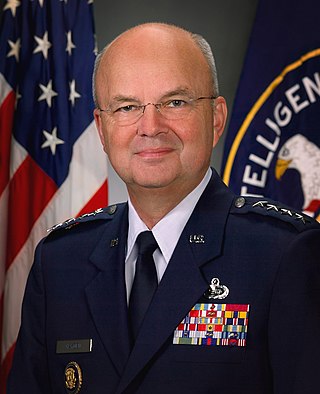
Michael Vincent Hayden is a retired United States Air Force four-star general and former Director of the National Security Agency, Principal Deputy Director of National Intelligence, and Director of the Central Intelligence Agency. He also serves as a professor at the George Mason University - Schar School of Policy and Government. Hayden currently co-chairs the Bipartisan Policy Center's Electric Grid Cyber Security Initiative. In 2017, Hayden became a national security analyst for CNN.

The Central Intelligence Agency, known informally as the Agency and historically as the Company, is a civilian foreign intelligence service of the federal government of the United States, officially tasked with gathering, processing, and analyzing national security information from around the world, primarily through the use of human intelligence (HUMINT) and conducting covert action through its Directorate of Operations. As a principal member of the United States Intelligence Community (IC), the CIA reports to the Director of National Intelligence and is primarily focused on providing intelligence for the President and Cabinet of the United States. Following the dissolution of the Office of Strategic Services (OSS) at the end of World War II, President Harry S. Truman created the Central Intelligence Group under the direction of a Director of Central Intelligence by presidential directive on January 22, 1946, and this group was transformed into the Central Intelligence Agency by implementation of the National Security Act of 1947.

Rick Francona is an author, commentator and media military analyst. He is a retired United States Air Force intelligence officer with experience in the Middle East, including tours of duty with the National Security Agency, the Defense Intelligence Agency and the Central Intelligence Agency. He was under contract to NBC News and appeared regularly on NBC, MSNBC and CNBC, as well as Radio Canada and other media. In 2013, he became a military analyst with CNN.
Carolyn McGiffert Ekedahl was an Assistant inspector general for Inspections at the Central Intelligence Agency from 2001 until 2005. She had previously served as Deputy Assistant IG from 1997-2001. From 1962-1985, she served as an analyst at the CIA, working on Soviet foreign policy.
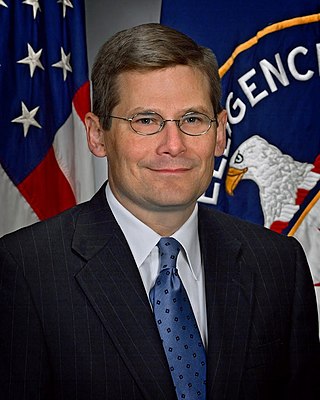
Michael Joseph Morell is an American former career intelligence analyst. He served as the deputy director of the Central Intelligence Agency from 2010 to 2013 and twice as its acting director, first in 2011 and then from 2012 to 2013. He also serves as a professor at the George Mason University - Schar School of Policy and Government.
Intelligence Analysis Management is the process of managing and organizing the analytical processing of raw intelligence information. The terms "analysis", "production", and "processing" denote the organization and evaluation of raw information used in a phase informally called "connecting the dots", thus creating an "intelligence mosaic". The information may result in multiple analytic products, each with different security classifications, time scales, and levels of detail. Intelligence analysis goes back to the beginning of history. Sherman Kent is often considered the father of modern intelligence analysis. His writings include a 1947 book, Strategic Intelligence for American World Policy.

Bruce O. Riedel is an American expert on U.S. security, South Asia, and counter-terrorism. He is currently a senior fellow in the Saban Center for Middle East Policy at the Brookings Institution, and a professor at Johns Hopkins School of Advanced International Studies. He also serves as a senior adviser at Albright Stonebridge Group.
Graham E. Fuller is an American author and political analyst, specializing in Islamist extremism. Formerly vice-chair of the National Intelligence Council, he also served as Station Chief in Kabul for the CIA. A "think piece" that Fuller wrote for the CIA was identified as instrumental in leading to the Iran–Contra affair.

Robert James Woolsey Jr. is an American political appointee who has served in various senior positions. He headed the Central Intelligence Agency as Director of Central Intelligence from February 5, 1993, until January 10, 1995. He held a variety of government positions in the 1970s and 1980s, including as United States Under Secretary of the Navy from 1977 to 1979, and was involved in treaty negotiations with the Soviet Union for five years in the 1980s. His career also included time as a professional lawyer, venture capitalist and investor in the private sector.
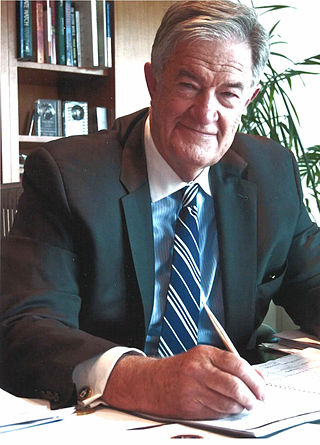
Jack Devine is a veteran of the Central Intelligence Agency (CIA) and a founding partner and President of The Arkin Group LLC.
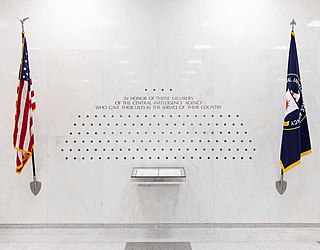
The United States Central Intelligence Agency (CIA) dates from September 18, 1947, when President Harry S. Truman signed the National Security Act of 1947 into law. A major impetus that has been cited over the years for the creation of the CIA was the unforeseen attack on Pearl Harbor, but whatever Pearl Harbor's role, at the close of World War II government circles identified a need for a group to coordinate government intelligence efforts, and the Federal Bureau of Investigation (FBI), the State Department, the War Department, and even the Post Office were all jockeying for that new power.















